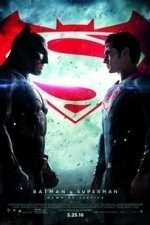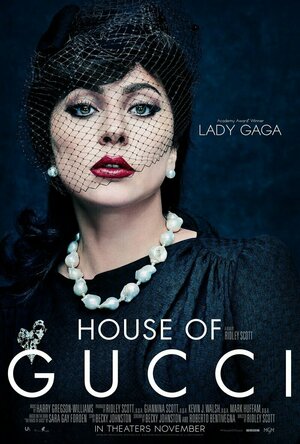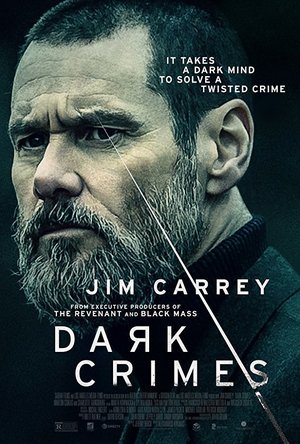Daniel Boyd (1066 KP) rated Batman v Superman: Dawn of Justice (2016) in Movies
Jul 24, 2017
Do you read? You will. And then realise how superior the comic that this is based on is to the actual movie itself, (and I’m not even a massive fan of the comic.)
I saw 10 Cloverfield Lane last week and while that movie wasn’t perfect, what made that a great movie is exactly what makes BvS a subpar movie. 10CL had a small team of people working on a restrictive budget, so every aspect of the movie was scrutinised and perfected to make up the end product and that attention to detail really paid off. BvS had a huge budget and a massive team of people working on it and I think that is what gives the movie it’s unfocused and sloppy feel. The script is a mess, there are clearly scenes cut, the editing is jarring, not all of the performances were up to scratch and while the imagery and visuals are incredible, the best way to describe this movie is all style and no substance. I like Zack Snyder, I love his Watchmen movie, I like 300 and I enjoyed Man of Steel, but I can’t help but feel that this is his fault. His decision to make years of comic book stories into one two and a half hour movie honestly baffles me. The events of this movie should have taken place over at least three movies, which I will discuss more in the spoiler section of this review, so stick around for that if you have seen the movie already. This movie really is all over the place and the pace and tone are random at best and if you have seen the trailers then you have essentially seen the movie. Let’s talk about the best part of the movie, which is quite easily Ben Affleck’s Batman and Jeremy Irons’ Alfred. Seeing the two characters and their chemistry are worth the ticket price of the film alone. This is probably the most faithful to the source material Batman that we have had on the big screen to date, except for one pretty major change. Batman in DoJ is pretty much Punisher in a cowl. During the Batmobile chase (which was really fucking awesome by the way,) he questionably kills some goons. I mean, some of them could have survived like, if they had Wolverine’s healing powers I guess? But then there is that badass warehouse scene that we see in the trailers and during that he near enough shoots some guys himself. If you can get over this and see this as an alternate version of Batman you should be able to appreciate Affleck’s performance though, which by the way is amazing, he knocks it out of the park. I would have liked some kind of reference to it, even a scene where he discusses breaking his code with Alfred, just a few lines would have made me get on board with this version of the character a lot quicker. Critics have been calling Henry Cavil’s Superman performance wooden, but I think that is too harsh, he is perfectly serviceable but he isn’t going to be praised for his memorable performance either. Gal Gadot as Wonder Woman is badass, my only complaint is that she isn’t in the movie enough as Wonder Woman. Jesse Eisenberg is the stand out worst performance in the movie. It isn’t necessarily a bad performance, it just does not fit that character at all. He was truly miscast here, if they had cast him as Riddler in the Batman solo movie and he put in this performance I would be praising him like mad. Lex Luthor shouldn’t be crazy on a surface level, he should be a respectable businessman and an intellectual force to be reckoned with and he will go out of his way to ensure that this is what everyone sees him as, it is only ever the people closest to him that that he allows to see him crack. He certainly shouldn’t be making strange noises and gestures like someone with OCD or a mental issue. Also Doomsday is silly and is just shoehorned in at the end for the sake of giving the trinity and enemy to battle against.
Do you pee? You will. After sitting though near three hours of this garbage.
So to give my overall opinion before I get into spoilers, I will say that I enjoyed this movie better than Man of Steel, but only slightly and I dislike it for a lot of the same reasons. Just like Man of Steel there are parts of this movie that I adored and parts that I hated. Mixed emotions is an understatement. In my mind any movie above a 7 is a great movie and unfortunately I can’t call this a great movie. I fully believe that everyone should see this movie and form their own opinion, especially since reactions have been so mixed, but I felt that it simply didn’t live up to the hype that it set for itself and I feel like Zack Snyder may be doing more harm than good setting up the DCU. 6.5/10.
Do you see? You will. Or at least you better have seen it by now because I am about to spoil the shit out of the whole movie.
Like I said earlier, the events of the movie really should have been split across several movies and explored more rather than rushed through at a breakneck speed. We should have had a whole movie on Batman V Superman, the conflict ideals between them and the discussion of whether or not this world needs a Superman. Then we should have had a movie just based on the dawn of the justice league, with Batman and Superman eventually understanding each other and becoming friends and with way more scenes with Wonder Woman and a proper introduction to the other characters rather than the literal plot device USB stick we got in BvS. Then we should have had a few Justice League movies and once Superman was an established character within the universe, they should have killed him off then and did the Death and Return of Superman story, not in this one where Batman and Wonder Woman hardly know him and the public still don’t know whether he is good or bad. Also if Batman kills now, what reason is there for the Joker to still be alive? The whole point of their relationship is that Batman won’t kill Joker because of his code and Joker won’t kill Batman because he loves fighting him, but if Batman has no code and he has been Batman for years then he really should have killed Joker a long time ago. I did enjoy Batfleck and I am very much looking forward to his solo Batman movie, but BvS is rushed and sloppy. So I’ve said my piece, now let the fanboy hate commence.
BankofMarquis (1832 KP) rated House of Gucci (2021) in Movies
May 14, 2022
Directed by Ridley Scott with a screenplay by Becky Johnson and Roberto Bentivegna (based on the book by Sara Gay Forden), HOUSE OF GUCCI tells the tale of the Gucci family and their fashion empire as the family sees a transition from the older generation to the new - and the outsider who stirred the pot.
This film is filled with stars - Lady Gaga, Adam Driver, Al Pacino, Jeremy Irons and Jared Leto - and is Directed by the great Ridley Scott, so why didn’t this film work?
Ultimately, films rise and fall with the script and the direction thereof, and unfortunately, both of these fall well short of good…but above bad.
Ridley Scott seemed to direct this film with the attitude of “the actors will fill out the thinness of the script, so I’ll just leave them to their own devices”, and this approach just doesn’t work.
Lady Gaga, so good in A STAR IS BORN, is just a little lost as Patricia Reggiani - the outsider (some would say Gold Digger) who digs her claws into a hapless Maurizio Gucci (Adam Driver). The first part of this film is mostly interesting as we watch Patricia manipulate Maurizio into marrying her - much to the dismay of his unapproving father, Rodolfo Gucci (Jeremy Irons, in the only characterization of this film that works from beginning to end). Driver is mostly good as the milquetoast heir who grows into a Business Mogul, but his character is mostly dealing with internal turmoil that turns into blank expressions on screen - NOT a good move for a movie.
And then the film takes a turn into burlesque with the introduction of Rodolfo’s brother and business partner, Aldo Gucci (Al Pacino) and his “idiot son”, Paolo Gucci (Jared Leto, unrecognizable under his make-up). It’s not often that you can say that Pacino is “out-over-acted” by another performer, but Leto mops the floor with him. While Pacino, actually, dials back his usual tendency to over-act, Leto goes all in on the over-acting front - so much so that one has to wonder what type of film that Leto thought he was acting in.
Ultimately, the film falls short because of a lack of focus. The movie (kind of) tries to tell the story from every characters’ point of view and in that attempt, fails, and ends up telling the story from no one’s point of view. The film starts with Gaga’s character being the entry point into the story for the viewer, but then we kareem off into Driver’s story, somewhat, and them (maybe) Pacino and Leto’s before coming back to Gaga (for a small bit) and then jumping over to Driver’s…
Well, you get the point. House of Gucci loses it’s focus along the way so you are left wishing you could get more from these characters - except for Leto’s - you wish there was a lot less.
Letter Grade: C+
5 stars (out of 10) and you can take that to the Bank(ofMarquis)
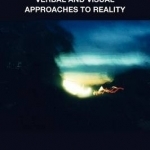
A Clinical Application of Bion's Concepts: Verbal and Visual Approaches to Reality: 3
Book
The final book in the three-volume series, A Clinical Application of Bion's Concepts - a practical...
Daniel Boyd (1066 KP) rated X-Men: Apocalypse (2016) in Movies
Jul 19, 2017 (Updated Apr 16, 2021)
The tone is another issue I have with the movie, it is fairly inconsistent throughout and never reaches the level of threat that it is aiming for. However, this is through no fault of the cast or the performances. MacAvoy and Fassbender stand out here as you would expect, their relationship also remains one of the most interesting parts of the plot. Isaacs’ performance is also suitably threatening and sinister, the only thing lacking in his character other than the odd design choice, is how short he is next to the other mutants. He doesn’t have to be huge like in the comics and cartoons, but making him a little bit more physically imposing with clever camera tricks would have went a long way in adding to the character. Jennifer Lawrence is fine here as usual and young Cyclops and Jean Grey are perfectly serviceable, although Sophie Turner’s American accent does come and go in certain scenes. Even Peters is typically brilliant as Quicksilver and the actress who plays Storm here is also pretty convincing, as is the young English actor who plays Angel. Nightcrawler is a welcome addition to the roster as I feel that he has been criminally underused since the second X Men movie and his power set is definitely one of the most interesting in all of the X Men movies, also the actor playing him here does a good job throughout the film. However the same can’t be said for Olivia Munn who plays Psylocke in this movie, I have disliked this actress in every role I have seen her in to date and the same goes for this one, she brings nothing to the movie and she constantly has a resting bitch face that suggests she doesn’t want to be there.
Like Civil War, X Men wasn’t anything like the comic it was based on and we didn’t get what we expected, but what we did end up getting was fresh and entertaining in it’s own right, so it’s okay that the film plots aren’t 100% faithful to the source material and that is something that Singer has been preaching since he made the first X Men movie back in 2001, which incidentally wasn’t based on any comic book and was a totally original plot. Also I love how because of the alternate timeline they are now free to do whatever they want in terms of the timing of certain events. For example, (and this is a slight spoiler, but the movie has been out for a while now so deal with it,) the Phoenix Force makes an appearance in this movie, which typically isn’t something that Jean Grey acquires until later in her life. Also the fact that we saw Wolverine escaping from Weapon X again, (again spoilers but this was in the trailers anyway so again, deal with it,) was awesome and this time we saw him being broken out by the young X Men and this time he had the comic book accurate electric headgear on while he escaped and I also loved how we saw him interact with young Jean Grey and regain some of his memories. This could also could be a change in the timeline caused by the butterfly effect as a result of the events of Days Of Future Past. This would also explain why the Magneto/Quicksilver, father/son relationship has never been discussed before, because if Apocalypse never awakened in the original X Men trilogy, then Quicksilver would have never went to the X Men mansion and therefore wouldn’t have come into contact with his dad during the final battle scene. Also Mystique looks like she is now a member and potential leader of the X Men team, rather than an enemy of the team like she was in the original movies when she was played by Rebecca Romjin. The other big change in the timeline is the death of Magneto’s family and even the fact that he had a wife and another child besides Quicksilver and Scarlett Witch.
Overall I really enjoyed this movie, however I can also see why some people would take a disliking to it, as it does require a good amount of previous knowledge of the universe, but as an X Men fan, I loved it. Also another criticism I have read is that people aren’t happy with the length of the film, stating that it is too long and it drags in, but I actually thought the pacing was spot on. Anyway as an X Men fan, I loved my time would this movie and I look forward to seeing it again and I’d recommend it to anyone who is a mutant superhero fan.
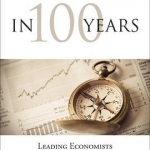
In 100 Years: Leading Economists Predict the Future
Book
This pithy and engaging volume shows that economists may be better equipped to predict the future...
Shared Decision Making in Health Care: Achieving Evidence-Based Patient Choice
Glyn Elwyn, Adrian Edwards and Rachel Thompson
Book
Over the past decade health care systems around the world have placed increasing importance on the...
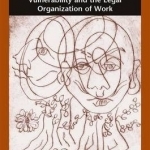
Vulnerability and the Legal Organization of Work
Martha Albertson Fineman and Jonathan W Fineman
Book
This book uses the concepts of vulnerability and resilience to analyze the situation of individuals...

Nook eReaders For Dummies
Book
Portable guide to NOOK Simple Touch and NOOK Color NOOK e-readers are hotter than ever. Now you can...
LilyLovesIndie (123 KP) rated Honour in Books
Nov 5, 2018
This stunning collection of short stories has got to be one of my favourite items on my kindle. When I read these I experienced such a depth of emotion and they moved me so much that I had to keep putting it down to get tissues and mop up the mess that I became. This, by far, is Feeney's greatest work to date. She elicits such a wonderful amount of emotion from you, and this is all the more remarkable when you consider that some of the stories are just a few thousand words long. In order to do each story the justice they truly deserve, I am going to briefly review each book before summing up my main ideas. So if you're sitting comfortably, I'll begin....
Honour
A young woman at a graveside, the rain falling down, already the emotions are running high, and this is just the first paragraph of the story, yet I'm hooked. Throughout the whole of this story Feeney leads you in a direction, letting your imagination fill the gaps, but then at the last minute she deals her hand and tells you exactly what is going on, and boy did it knock me for six! I was most definitely not expecting that turn of events, but strangely, it totally fitted. Apologies for the vagueness, but I don't want to spoil it for you as this is one of the key features of this story.
Deserter
Just as the title suggests, this story deals with a deserter, the officer who tries to cover it up and his family dealing with his actions at home. I know what you're thinking, there's enough material there to write a whole book! But Feeney writes this superbly, capturing the emotions of all the key characters in just a few short chapters. Jack's dilemma, and the reasoning behind his desertion, are both incredibly touching and very sensitively written. As someone who can't even begin to comprehend what horrors soldiers must see every day, I really feel like Feeney gave us a glimpse into a tortured mind, a soul that was broken and in need of so much healing that just simply wasn't available. She also deals fantastically with the stigma attached to deserting in a very delicate and sensitive manner, highlighting the other side of the story incredibly well.
Silence is Deafening
I've read and re-read this story so many times, but it still kills me every time! It's so emotionally written, charged with sadness and a sense of duty, a sense of honour. Strangely, I engaged more with Evelyn as I found myself imagining what her emotions would be when she wakes up and reads Joseph's letter. I could feel the ties that bound them together being strained and pulled, the pain they must have felt. It was just so well written the intensity of their love was completely real, it charged the room around my and stole my breath. But what I loved most about this story is that there was hope at the end. He might have survived, he might have come back. The tiniest glimmer was there, and it captured my imagination and sent seeds of thought rooting deep in my head. It's not a story you'll forget in a hurry, but in the best possible way!
Letters to No One
This is perhaps my favourite military based story I've ever written, but for me it is head and shoulders above the others in this collection. I could talk for hours about why I loved this story so much, but I'll try and summarise it and not spoil anything. The strongest feature of this particular story is it's wonderful believability and 'normal' way of approaching what is, to non-military families at least, a very abnormal situation. The letters are funny, yet very much full of a sadness at the separation and need to see each other one more time. Jonno is a great character, and although he doesn't feature much directly, it's the indirect references to him in his families letters which really bring him to life. Little Michael is totally adorable, and his letter is perhaps my favourite purely for the innocence only a child can have. The whole story touched me more than any other in this collection, eliciting full on body shaking sobs and I can only conclude that it is because it is a. wonderfully written and b. incredibly realistic. As much as I hate to admit it, this has probably happened to countless families out there, and that immense sadness just crushed me and opened my eyes to a whole new way of looking at things.
Night Terrors
Initially, I found this quite difficult to get into, it's the one story in the collection I wasn't over keen on as I read through. However, it's a bit of a 'grower' and, like 'Silence is Deafening', it planted hundreds of little seeds of thought in my brain and when given time to develop they just grew and grew until they were out of control. Dealing with what is essentially PTSD, and how it affects not only the sufferer but also their family, 'Night Terrors' has so much it can teach the reader. We all think nothing of our 'normal' lives, but this was another story that really opened my eyes to the troubles being in the military can cause. Carl's dad clearly struggled for years, never feeling he could discuss him experiences and so they literally terrorised his dreams. It's incredibly sensitive in how the story deals with what is a very current and prevalent issue and Feeney deserves a great deal of credit for not only having the balls to deal with this subject matter, but also for doing it so brilliantly. Again, this is another emotionally charged piece of writing, but Feeney really does develop the plot so well and so subtly that it sucks you in without you noticing.
Welcome Home
The final story in the collection is as wonderful as the others. A happy ending, a reunion, a feeling of hope to carry forward. This is the ending we all want for all our soldiers, and Feeney cleverly reminds us that no matter how many may perish, and however sad that may be, we must always keep looking for that glimmer of hope, and take the opportunities of happiness that are offered to us when they are there, because we never know when they will be snatched away.
One of the key features in all of these stories is how engaging they are, despite what is, at times, very upsetting subject matter. The characters pull you in, the circumstances, although fictional, are tinged with a reality that brings you crashing down to ground when you think about them after (and believe me, you will) and you realise, 'that could have actually happened to someone'. It's a humbling thought, and one that really makes you think, but in a good way. Reading this book made me so much more thankful for the sacrifices servicemen and woman make, and the pain their families must experience, but mostly it made me grateful for my own life.
Something else that shines through is how real everything feels in these stories. I know Feeney did a large amount of research into military procedures and that is evident with the protocols, the addresses, the description, just everything really! It's clear that this writing means a lot to the author, and that passion for respect and honour of our armed forces just oozes from every page and fills you with a great sense of pride and patriotism. It's strange to feel proud of something when you're reading (unless it's something you've written), but Feeney manages to elicit that, as well as many other emotions as you're reading and it just builds to a huge crescendo.
Another key feature is the description, and this is a theme that is evident throughout the whole collection. Feeney puts so much into her writing. You can clearly see in your mind the characters, you can feel the emotions, you hurt when they hurt, smile when they smile. It's her attention to the small detail in this story that really gives this story that extra something. Even though you don't know all the specifics like names and ages, we know plenty to cry for their loss and smile with them in their joy. You hurt when they hurt. It's very rare I find a story that moves me in such a way, especially one that is just pages long, but that is exactly what this story does.
In conclusion, this book is truly phenomenal, one of the best pieces of literature I have read so far this year. It's engaging, thought provoking, realistic, easy to read, but above all, it's just, well, words fail me. Honestly, I cannot recommend this highly enough. Five stars is not enough for this book, and it truly deserves the highest accolades possible. Seriously, go one-click! It's now available on Amazon UK and Amazon US, but heed my warning, you want a lot of tissues near you when you read this, tear-jerker doesn't quite cover it!
* * * * * *
I am SO excited about reviewing this and interviewing the author over on Lily Loves Indie and Ramble Media on 1st November as part of the Blog Tour! Watch this space for updates and snippets of my review.
Gareth von Kallenbach (980 KP) rated Dark Crimes (2018) in Movies
Jul 8, 2019
Today’s selection is a 2016 Polish-American dramatic-mystery film entitled ‘Dark Crimes’. The film is based upon an article published in ‘The New Yorker’ in 2008 entitled ‘True Crime:A Post-Modern Murder Mystery’ by David Grann about convicted Polish murderer, writer, and photographer Krystian Bala. Directed by Alexandros Avranas and written by Jeremey Brock, ‘Dark Crimes’ stars Jim Carrey, Marton Csokas, Agata Kulesza, Kati Outinen, Charlotte Gainsbourg, and Zbigniew Zamachowski. Jim Carrey is Detective Tadek. Formerly a highly decorated and respected detective, his recent work with the police department has been nothing more than administrative duties in the records department after a controversial case he was investigating involving an unsolved murder at a sex club was suddenly ‘shelved’ and he was relegated to his current desk job. A recent book by a controversial author Kozlow (Csokas), describes a murder almost identical to the unsolved murder of a businessman Tadek was investigating and even contains details that mirror many he discovered in his original investigation. After pleading with his immediate superior to allow him to continue examining the case, Tadek begins to delve deeper into the incident re-visiting the location of the murder and interviewing possible witnesses and others who may have been present or involved in the murder.
Soon Tadek’s determination overshadows everything else. He becomes paranoid and obsessed to such severity that he alienates his family and crosses lines professionally and personally as a sort of madness begins to take over. The moment he believes he has figured out the solution to the case that has become his obsession and cost him everything he has and the person he is, it all slips away as the truth about Kozlow’s involvement in the crime becomes clear and Tadek’s only remaining option is the one you don’t see coming.
This film is DARK and not for the faint of heart. The world knows Jim Carrey for comedy and that’s what he’ll ALWAYS be known for. This film metaphorically takes all that, throws it right out the window, then proceeds to run downstairs and then outside and stomp on it. Prepare to be shocked as this was Carrey like I’ve never seen him before. The film is dark, gritty, serious, and will tempt you to keep your finger on the ‘off button’ all the way through the film. In that regard, it is indeed a great film. It’s like a modern take on a classic well-written murder mystery novel where even in the end, the outcome is sometimes equal to if not worse than the actual crime itself. The world knows Marton Csokas for his villainous roles where he typically portrays Russian or Eastern European madmen and once again he does the same in this film with great flair. The film is rated R for strong and disturbing content and runs about an hour and a half so it’s most definitely NOT one for young folks. Which it late at night when it’s dark if you’re looking for something scary that will keep you awake all night. I’m going to give the film 3 out of 5 stars. It’s okay to see once but in all honesty, it’s nothing original that hasn’t been done in other films with other actors. This one is just a variation on a theme with deferent players and different aspects and details
